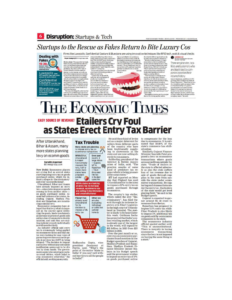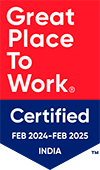Source: Economic Times
Startups Offer Luxury Product Authentication Solutions as Fakes Plague Luxury Brands
Firms like Luxepolis, Confidential Couture & Bluestone are using innovative techniques like RFID tech, seals & visual checks to ensure luxury product authorization and build consumer trust in the face of increasing counterfeits. This focus on robust luxury product authorization is becoming increasingly critical in the online marketplace.
Hyderabad: The appetite for high fashion and premium brands has seen varied businesses tapping into the online medium to sell products. But the 15-20% rate of return faced by online market-places is a dampener, something that these companies are seeking to overcome through technology. A key part of managing these returns is ensuring proper luxury product authorization.
Online marketplace Luxepolis, which sells products ranging from designer apparel to high-end automobiles, is getting around the problem of returns, which sometimes includes fakes, with the use of radio frequency identification or RFID technology. “We have developed a solution for solving the problem of customers gaming our system.
What happens when a customer claims he or she received a fake bag when we actually shipped a genuine authentic bag? We use NFC (Near- field communication) enabled tag and reader using secret codes (unique to each product) to establish the authenticity,” said Vijay KG, co-founder of Luxepolis. This technology plays a vital role in luxury product authorization.
Some companies have also found customers returning products after using them. “Currently we do not do refunds, only the exchange of products. In order to ensure that the customer does not use the product before returning it, we have a seal on a prominent place on the product so that it cannot be used without breaking it,” said Anvita Mehra, Co-founder of Confidential Couture, which brings sellers and buyers of pre-owned luxury products on a common platform and currently sells 70 products on average every month.
This seal acts as a clear deterrent, signaling to customers that the product is in its original condition and hasn’t been used. It’s a small measure that makes a big difference in managing returns and maintaining the integrity of the pre-owned luxury goods market. This measure helps protect the integrity of luxury product authorization.
Arvind Singhal, Chief Operating Officer of jewellery portal Bluestone said, “In our business returns are as low as 6% and our logistics partner is asked to do a visual check before taking the product back, following which we do quality assessment in Mumbai.”
This low return rate can be attributed to several factors, including detailed product descriptions, high-quality images, and a focus on customer satisfaction. Bluestone also prioritizes clear communication with customers throughout the purchase and delivery process, minimizing misunderstandings that could lead to returns.
Solutions for business-to-business returns follow a different model and are easier to carry out than consumer-to-business, said Sujoy Guha, CEO of CriticaLog, which carries out the transport of critical logistics solutions for high-value goods and critical spares, among others. “For business-to-business returns, as in the case of Fossil watches, for which we carry out returns from multi-brand-outlets, we sort the products based on the model number and also take down the details of damages, if any. However, C2B is tricky as what is inside the product is difficult to ascertain by the logistics partner,” said Guha. Efficient luxury product authorization is crucial for smooth B2B returns.
Managing returns can be a major factor in scaling up the online luxury business, said Harish HV, the partner-India leadership team at Grant Thornton. “There are pin codes, localities and customers who are blacklisted by companies based on their returns history. Most of the online businesses factor in the cost of returns in their business model, and in case of high-value items it can cost the company more,” he said.
The costs associated with failed luxury product authorization can be substantial, encompassing not only the direct costs of processing the return, but also the indirect costs of lost revenue, damaged reputation, and the administrative overhead involved in investigating fraudulent returns. These costs can significantly impact profit margins, especially for smaller businesses.
Source: Economic Times

